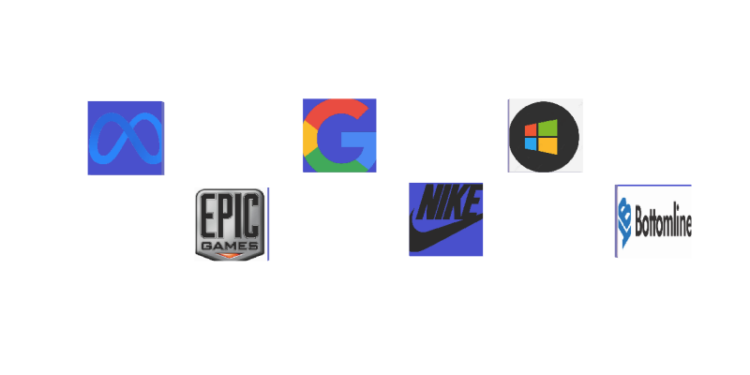The Metaverse is described as the next phase of the internet, one made of virtual worlds where the experience is immersive.
Although it is still a broad term, and much of it is still being conceptualized and developed, a large number of companies have, over time, put time and money into it by building virtual reality environments and investing in Metaverse projects and initiatives that allow people to share immersive experiences even when they’re not physically together.
Why are brands investing in the metaverse?
The Metaverse is creating a lot of buzz for consumers and businesses alike and has high potential areas of value, both in terms of content and infrastructure. It is undoubtedly a reservoir of opportunities to diversify sales by proposing new ‘products’.
Its universes have become a place of expression that is greatly appreciated by this current generation of consumers, because new digital media that attracts crowds of people always has great appeal for businesses.
Moreover, top metaverse companies realize something of value in virtual worlds that will change our world and enhance the convergence of our real lives with virtual reality.
So, which brands are making significant investments in the metaverse?
Big brands investing in the metaverse:
Multinational technology company Google is one that has invested billions in the future of AR, VR, XR, and 3D content in its cloud. In 2014, Google invented its own Google Glasses, a piece of wearable AR technology that would support the everyday life of the average human, but unfortunately, it failed.
Google dealt with a great deal of public humiliation with its failed AR Glasses, but this doesn’t seem to have completely pushed it away from investing in AR technology as the company once again has a strong position within the metaverse.
The company’s CEO, Sundar Pichai, has repeatedly discussed Google’s interest in AR with the press, and the company is aimed at retaining updated computer power and screen technology to simply move them along its already invested path.
Google has also invested millions in funds that invest in Metaverse projects such as Taiwan’s Ennoconn. Taiwanese Ennoconn Corporation.
Meta
Facebook, Inc. rebranded itself as Meta, Inc. in October 2021. The change came as a roadmap for the company’s commitment and determination to lead and build the Metaverse over the next decade.
Meta has also produced a massive awareness of 3D virtual worlds, and many individuals and companies have since begun to explore the huge potential that this digital world has to offer.
Some of the company’s most notable metaverse projects are Horizon Worlds, Horizon Workrooms, and its virtual experience glasses, the Oculus Quest 2 VR headset. Furthermore, Facebook is investing billions and hiring experienced people in Europe, the Middle East, and Africa to build their vision for our online social interactions in the future.
Meta is also working on hardware such as Oculus VR and Project Cambria, as well as its Meta AI, which the company is using to help machines learn how humans touch and feel by using sensors to provide feedback to users when they interact within the metaverse.
Microsoft
As a long-time player in the tech game, Microsoft focuses on developing action-based metaverse environments and taking extra strides into the metaverse – notably with Microsoft Mesh.
Moreover, in the gaming category, Microsoft is a strong house. In January 2022, the company announced that it would acquire Activision Blizzard, the massive video game developer and publisher, as a segment to secure a major spot in the metaverse.
Microsoft acknowledged that this acquisition will accelerate growth in the company’s gaming business across mobile, PC, console, and cloud and will provide the building blocks for the metaverse.
Microsoft’s express purpose of using its intellectual property for Mesh, in addition to its other projects, demonstrates how long its metaverse plans have been in the works and how well-positioned it is to play key roles in the metaverse.
Epic Games
Epic Games is best known for being the company behind Fortnite, one of the most popular multiplayer games of all time, with more than 350 million users worldwide. The game allows users to interact with each other online in an immersive social game as well as attend virtual concerts.
The success of Epic Games Fortnite is attributed to the power of the Unreal Engine. The Engine, which is the foundation of Fortnite, demonstrates Epic’s capabilities in computer graphics, 3D visualization, augmented reality (AR), and virtual reality (VR), which are essential to the Metaverse.
Moreso, Epic Games is expanding to make sure its converging ambitions aren’t limited but continue to grow.
Its valuation rose to $31.5 billion after receiving $2 billion in funding from Sony and Lego Group owner KIRKBI in April 2022 which will likely be invested to improve the Unreal Engine and create new experiences for Epic Games.
Nike
Nike is one major company investing heavily in the Metaverse. In 2021, the company created a Nikeland Roblox world filled with online games and virtual products, and as of September 2022, approximately 21 million people had visited Nikeland, indicating that the decision to build a world within Roblox was a good one.
The virtual world is increasingly attracting attention and investment from fashion and clothing brands, providing the opportunity to connect with younger users and create awareness of their products.
Nike Digital, the division that includes the company’s three branded web projects, generates 26% of Nike’s total revenue. In December 2021, the company also acquired studio NFT and digital fashion powerhouse RTFKT, which now operates under the Nike Virtual Studio umbrella.
Nike is also expanding its offering with its virtual world, Nikeland, which also serves as a host for exclusive digital events with Nike celebrities and sponsored athletes such as LeBron James.
Bottom Line
As civilization constantly evolves, we are likely to spend an increasing amount of time in digital spaces, and brands that invest now in the Metaverse will create an edge that has the potential to unleash the next wave of digital disruption.
However, as promising as it may sound, the Metaverse is no guarantee. No one knows if it will be the next big technological revolution, we can only watch to see how far these companies investing in the Metaverse go and what innovations they create and succeed in.














